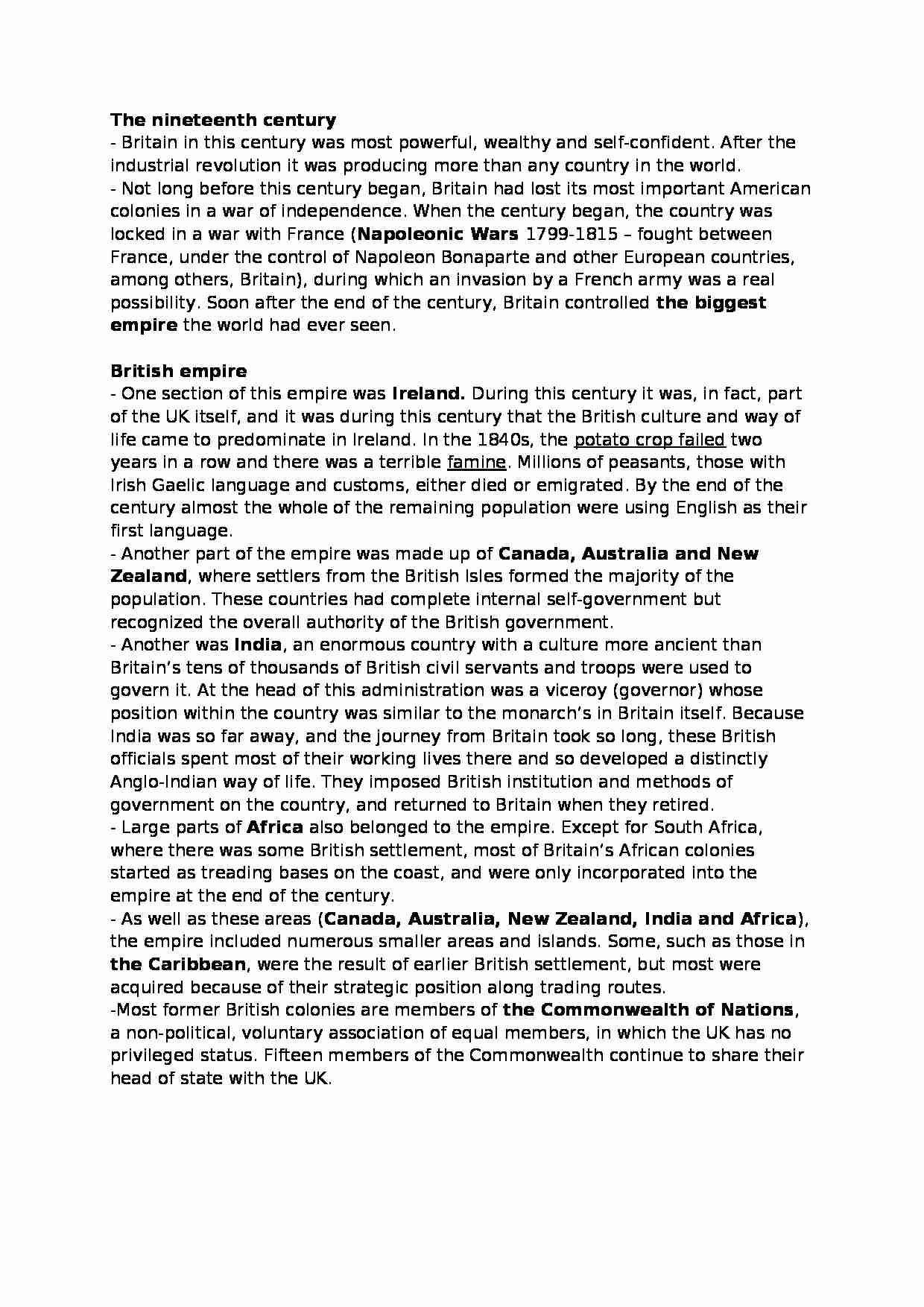
The nineteenth century - Britain in this century was most powerful, wealthy and self-confident. After the industrial revolution it was producing more than any country in the world. - Not long before this century began, Britain had lost its most important American colonies in a war of independence. When the century began, the country was locked in a war with France (Napoleonic Wars 1799-1815 - fought between France, under the control of Napoleon Bonaparte and other European countries, among others, Britain), during which an invasion by a French army was a real possibility. Soon after the end of the century, Britain controlled the biggest empire the world had ever seen. British empire - One section of this empire was Ireland. During this century it was, in fact, part of the UK itself, and it was during this century that the British culture and way of life came to predominate in Ireland. In the 1840s, the potato crop failed two years in a row and there was a terrible famine. Millions of peasants, those with Irish Gaelic language and customs, either died or emigrated. By the end of the century almost the whole of the remaining population were using English as their first language. - Another part of the empire was made up of Canada, Australia and New Zealand, where settlers from the British Isles formed the majority of the population. These countries had complete internal self-government but recognized the overall authority of the British government. - Another was India, an enormous country with a culture more ancient than Britain's tens of thousands of British civil servants and troops were used to govern it. At the head of this administration was a viceroy (governor) whose position within the country was similar to the monarch's in Britain itself. Because India was so far away, and the journey from Britain took so long, these British officials spent most of their working lives there and so developed a distinctly Anglo-Indian way of life. They imposed British institution and methods of government on the country, and returned to Britain when they retired. - Large parts of Africa also belonged to the empire. Except for South Africa, where there was some British settlement, most of Britain's African colonies started as treading bases on the coast, and were only incorporated into the empire at the end of the century. - As well as these areas (Canada, Australia, New Zealand, India and Africa), the empire included numerous smaller areas and islands. Some, such as those in the Caribbean, were the result of earlier British settlement, but most were acquired because of their strategic position along trading routes. -Most former British colonies are members of the Commonwealth of Nations, a non-political, voluntary association of equal members, in which the UK has no privileged status. Fifteen members of the Commonwealth continue to share their head of state with the UK.
... zobacz całą notatkę



Komentarze użytkowników (0)